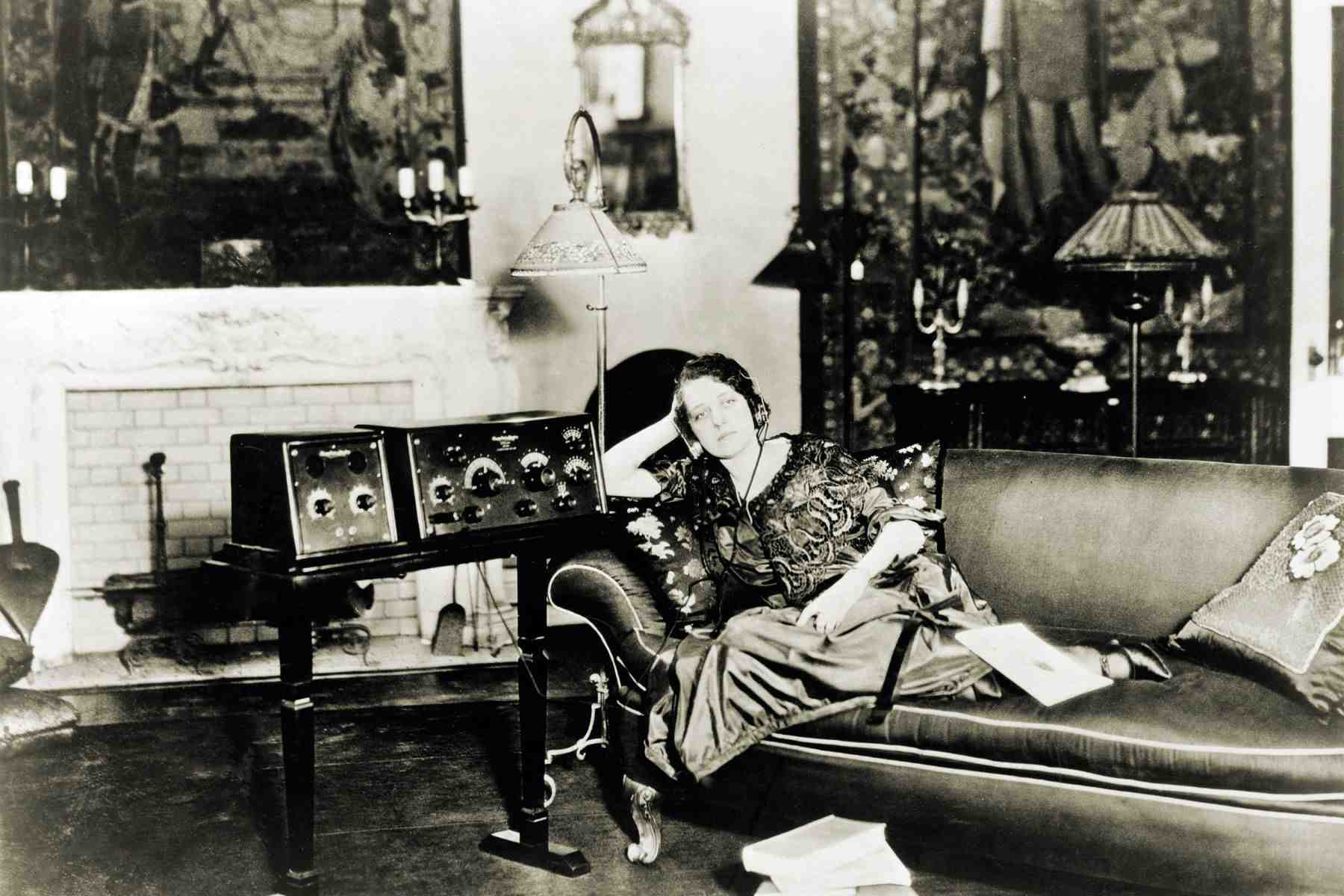What are the advantages and disadvantages of radio?
Benefits & amp; Disadvantages of radio advertising
- Advantage: Affordable price. …
- Benefit: Wide reach and target audience targeting. …
- Benefit: Timely delivery of messages. …
- Disadvantage: Poor attention and fragmentation. …
- Disadvantage: Lack of visual appeal. …
- Disadvantage: Complex national purchasing processes.
What are the disadvantages of a radio? Like any other medium, radio also has certain limitations. These include lack of a visual element, audience fragmentation, limited research data, limited listener attention, and clutter.
What are the disadvantages of Internet radio?
One of the disadvantages of listening to radio is that there is nothing that can be done to prevent people from being rude to the radio host or other listeners. This can be a problem if one is trying to enjoy electronic music streaming stream on the internet because they want to listen to it on their own time.
What is the major disadvantage of radio frequency?
A disadvantage of radio waves is that it has a low frequency, so it can not transmit (send) a lot of data at once. The advantage of using a high frequency carrier is a.)
What are the advantages of disadvantages?
Disadvantages can help you see your situation from different perspectives and find approaches to success that you would not otherwise have found. Benefits can blind you to the need to keep searching for better ways to pursue success.
What are examples of disadvantages?
An example of a disadvantage is that a baseball player cannot play. An example of a disadvantage is a baseball team star player who has to sit out due to an injury. A weakness or unwanted trait; a con. The downside of owning a food processor is that you have to store it somewhere.
What are the advantages and disadvantages of lists?
Another possible way to structure your advantage / disadvantage essay is this; You may want to add sections to explain additional pros or cons, but there should be only one main idea in each main section. Do not write all your pros / cons in one paragraph.
What are the disadvantages of broadcast media?

DISADVANTAGES OF BROADCAST MEDIA It takes a nice crown to secure a place on TV and radio in prime time. It is competitive and challenging to get the attention of decision makers. It can be harder for new businesses without street-cred to be highlighted.
What are the benefits of broadcast media? â € “You can deliver a message, announcement or concert in real time, as it happens without delay. No restrictions – events can run as long as necessary as they are not limited to TV scheduling, DVD / video length. Cost – Webcasting content is cheaper than using commercial television broadcast platforms such as satellite.
What is broadcasting and its disadvantages?
Reply. Several seeds / seed waste are used. Lack of uniformity in area coverage / uneven area coverage. Uneven plant depth / uneven germination / uneven growth. Difficult to perform subsequent operations such as weeding.
What is a broadcasting system?
BROADCAST SYSTEM means any satellite-based video and / or audio system capable of receiving and distributing in-flight entertainment on commercial aircraft and / or ordinary aviation aircraft, including interactive systems.
What are the disadvantages of broadcasting system?
The following are the disadvantages of radio broadcasting: ➨Poor audience attention due to lack of visual information. ➨See the disadvantages of sound energy used in radio broadcasts. See also pros and cons of RF (Radio Frequency) signals used in radio broadcasting systems.
How did radio impact society?

The introduction of radio and television has had a profound impact on many aspects of society and culture, particularly in the humanities. Radio allowed the transmission of music all over the world and brought different styles like opera and bluegrass to parts of the world that had never even imagined such things.
How did the radio affect the economy? A new study by Woods & Poole Economics showed that the local commercial television and radio industry generates $ 1.17 trillion of gross domestic product and $ 2.47 million through direct and stimulating effects on the U.S. economy.
How radio is serving the society?
Community stations serve geographical communities and communities of interest. … In many parts of the world, local radio serves as a tool for society and the voluntary sector, civil society, agencies, NGOs and citizens to work in partnership to promote community development goals, in addition to broadcasting.
What is the role of radio?
It plays a key role in socializing and helps people find happiness, especially in hard times. By playing music and talking about interesting topics, radios provide high quality entertainment that is free and satisfying for the listeners.
What are the roles of radio in the community?
Local radio broadcasts serve the interests of geographic communities and communities. … In many parts of the world today, local radio acts as a tool for society and the voluntary sector, civil society, agencies, NGOs and citizens to work in partnership to promote community development.
Why is the radio important to society?
In addition to serving as the lifeblood of emergency communications, they also provide jobs and play a daily role in the lives of their community. There is every reason to support the continued existence of radio stations instead of endangering them, especially in the wake of a recession and natural disasters.
Why is radio still important?
Radio is the most reliable signal and means of communication in times of natural disasters – far better than mobile networks or landlines. Rich or poor, virtually every household in America has access to a radio.
How did Radios impact society?
Radio encouraged the growth of national popular music stars and brought regional sounds to a wider audience. The effects of early radio programs can be felt both in modern popular music and in television programs. The doctrine of justice was created to ensure fair coverage of topics in the airwaves.
How did the radio impact the economy?

A new study by Woods & amp; Poole Economics found that the local commercial television and radio industry generates $ 1.17 trillion of gross domestic product and 2.47 million jobs through direct and stimulating effects on the U.S. economy.
How did radio affect society in the 1930s? For radio, the 1930s were a golden age. … Radio may have had such a mass appeal because it was an excellent way to unite communities of people, albeit virtually. It provided a great source of entertainment for much-loved comedians like Jack Benny and Fred Allen, who made their names wireless.
How does the radio benefit society?
In addition to serving as the lifeblood of emergency communications, they also provide jobs and play a daily role in the lives of their community. … Local radio is most important to communities for more than just emergency messages and communication during disasters.
How did the radio affect people’s lives?
Radio became an important link for information and had the power to influence people’s opinions in a way never seen before. People could quickly figure out what was happening in the world after it happened, and it was much faster than waiting for the newspapers to print a story.
What are negative effects of radio?
Exposure to very high RF intensities can result in warming of biological tissue and an increase in body temperature. Tissue damage in humans can occur during exposure to high RF levels due to the body’s inability to cope with or dissipate the excessive heat that could be generated.
How did Radios impact the 1920s?
With the radio, Americans from coast to coast could listen to exactly the same program. This had the effect of smoothing out regional differences in dialect, language, music and even consumer tastes. Radio also changed how Americans enjoyed sports.
How did the 1920’s radio work?
Crystal radios, like the one on the left, were among the first radios to be used and manufactured. These radios used a piece of lead galvanic crystal and cat hair to find the radio signal. Crystal radios allowed many people to participate in radio craze in the 1920s because they were easy to make from home.
Why was the radio important in the 1920s?
Radio created and pumped American culture out into the airwaves and into families’ homes around the country. … With the radio, Americans from coast to coast could listen to exactly the same program. This had the effect of smoothing out regional differences in dialect, language, music and even consumer tastes.